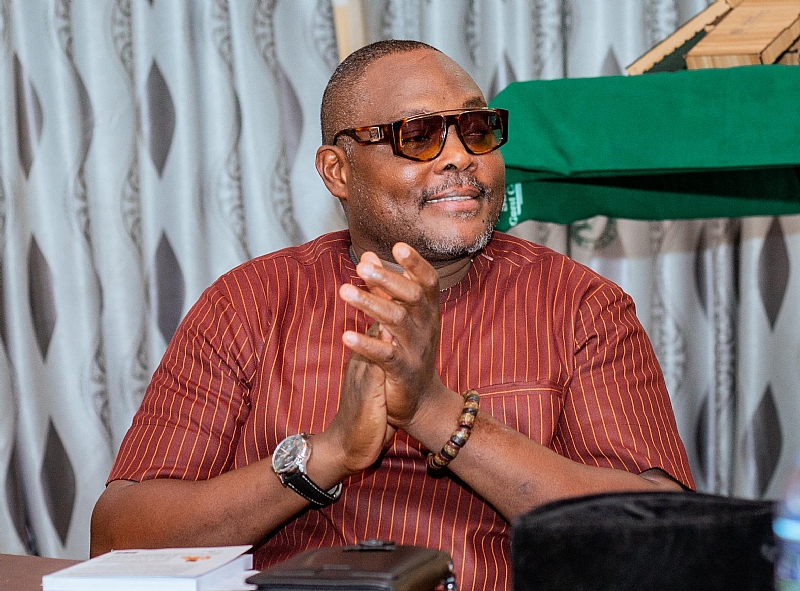Dr. Kwamena Minta Nyarku, Member of Parliament for Cape Coast North, has voiced strong support for former President John Dramani Mahama’s renewed presidential bid, emphasizing his extensive experience and unique position as a three-time president (including his current term). Speaking on a radio program focused on Ghana’s progress and future challenges, Dr. Nyarku highlighted Mahama’s deep understanding of governance and his commitment to addressing the nation’s concerns. He argued that Mahama’s past experiences, including electoral defeat and subsequent reflection, have equipped him with the necessary resolve to lead Ghana effectively. Dr. Nyarku expressed confidence in Mahama’s ability to succeed in his current presidential term. He framed Mahama’s recent State of the Nation Address not as a litany of complaints but as a realistic assessment of the challenges facing the country, coupled with proposed solutions for overcoming them.
A significant portion of Dr. Nyarku’s commentary focused on the critical issue of education and youth unemployment. He revisited the Free Senior High School (FSHS) policy, acknowledging its foundational pillars of access, equity, and equality. However, he expressed deep concern over the large number of FSHS graduates—over 300,000—who have been unable to transition to tertiary education. This bottleneck, he argued, contributes significantly to the growing problem of youth unemployment, a pressing issue that demands immediate attention and innovative solutions. Dr. Nyarku stressed the urgent need to shift focus from simply providing free secondary education to creating opportunities for these graduates to further their education or enter the workforce, thereby contributing meaningfully to national development. He framed this challenge as a priority for the government and the nation as a whole.
Beyond education, Dr. Nyarku highlighted the interconnectedness of various national challenges, including those related to technology and infrastructure development. He stressed the importance of inclusive governance, praising President Mahama for initiating the National Dialogue, a platform designed to bring together diverse stakeholders to collaborate on shaping Ghana’s future. This inclusive approach, he argued, is crucial for addressing complex national issues effectively and building a shared vision for progress. He contrasted this collaborative spirit with what he perceived as the opposition New Patriotic Party’s (NPP) disengagement from vital national events, a stance he viewed as detrimental to national unity and progress.
Dr. Nyarku specifically criticized the NPP’s absence from a parliamentary workshop designed for new MPs. He argued that this boycott deprived their newly elected members of crucial training and understanding of parliamentary procedures, ultimately hindering their effectiveness in the legislature. This, he contended, led to their subsequent struggles and missteps within Parliament. He expressed concern that the NPP’s broader pattern of non-participation in national events, including those organized by the current NDC government, sends a negative message to the public, suggesting a lack of commitment to national development and unity. He implied that this perceived disinterest could further deepen political divides and hinder collaborative efforts to address critical national issues.
The core of Dr. Nyarku’s message centered on the importance of unity and collaboration in addressing Ghana’s challenges. He contrasted President Mahama’s inclusive approach, exemplified by the National Dialogue, with the NPP’s perceived disengagement. He argued that a united front, incorporating diverse perspectives and expertise, is essential for overcoming the complex issues facing the nation. He implicitly called upon the NPP to reconsider its strategy and actively participate in national dialogues and initiatives, emphasizing that their contribution is vital for achieving meaningful progress and fostering a sense of shared national purpose.
Dr. Nyarku’s comments reflect a broader political discourse in Ghana surrounding the roles of experience, collaboration, and inclusive governance in addressing national challenges. His strong endorsement of President Mahama’s leadership, coupled with his critique of the opposition’s perceived disengagement, highlights the ongoing debate about the best path forward for the nation. His emphasis on youth unemployment and the need to address the challenges facing FSHS graduates underscores the urgency of finding solutions to this pressing issue and ensuring that the investment in free secondary education translates into tangible benefits for individuals and the nation as a whole. He positioned President Mahama as the leader best equipped to navigate these complex challenges and build a more prosperous and unified Ghana.














